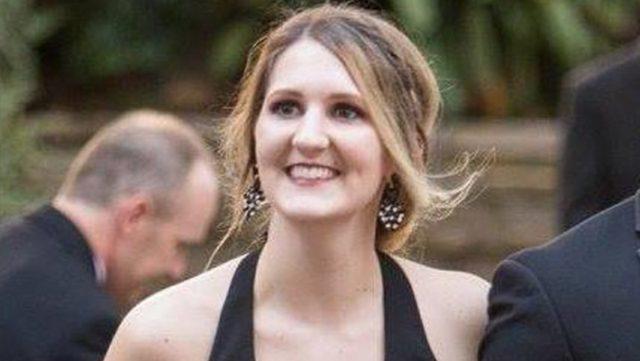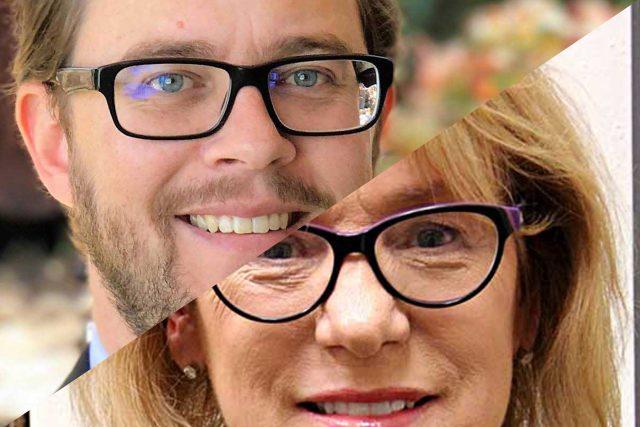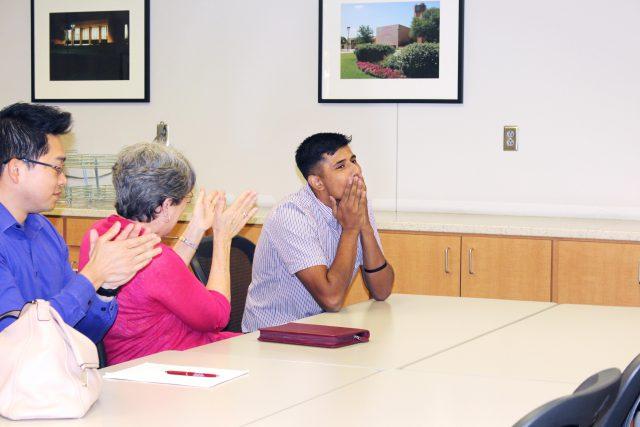By Victoria Pedersen/ reporter
What’s Your World View?, a roundtable discussion featuring the meaning and practice of religion and spirituality in students’ daily lives, opened NE’s International Festival April 10.
“It is important to learn to actively listen to others with different points of views,” said moderator and philosophy instructor Bryan Morgan.
Morgan structured the discussion so participants could present their worldviews and answer questions.
“To seek clarity, it is necessary to apply critical thought to our own worldview,” he said.
Through a series of questions, student panelists provided an overview of their worldviews.
James Yerby described naturalistic/humanistic belief encompassing reason and social justice.
At a young age, he said he questioned traditional Christian values.
Yerby said he gravitated to the scientific and tried to keep an open mind.
“Use of intellect provides meaning,” he said.
Humanists want to live a good life without religious or superstitious beliefs, Yerby said.
“We can be ethical and moral without God,” he said.
One of Yerby’s abiding principles is “Don’t take more than you give,” he said.
Tanner Sawall said he adheres to traditional Christian beliefs through the Lutheran denomination.
“I use the Bible to seek fundamental truth and determine the difference between right and wrong,” he said.
Branden Poythress said Buddhism has helped him overcome life’s obstacles.
“Buddhism uses chants to call out courage, wisdom and conviction to work out any problems,” he said.
The ultimate goal is to find contentment in life, Poythress said.
“I was shy and struggled for unshakable happiness,” he said. “Chanting gave me self-confidence to become happy.”
Angelina Fortner said she felt a collectiveness with New Age spirituality. She sought out different religious ideas and noticed a commonality.
“The similarities in religions was the connectedness that led to a sense of purpose,” she said, giving the examples of getting married and having children.
Fortner also provided advice.
“Improve yourself so you can help others,” she said.
Elizabeth Frazier said she adheres to panentheism or the belief that God is greater than the universe.
“All things are divine and made for a purpose,” she said. “Art and science contribute to learning about the universe.”
Frazier said she has a strong connection to nature.
“All life is sacred,” she said. “I go camping and kayak in the dark. I feel that connection.”
She made a point about connectedness with others and used her volunteer work at retirement homes as an example.
“I listen and am grateful for the stories the elderly tell,” she said.
Xania Murray, a Christian, said she still has friends who are atheists despite her own religious convictions.
“Everyone has their own beliefs,” she said before offering some advice. “Be kind.”
Karina Picado, another Christian, understands that the way people live their lives has an impact on those around her.
“Treat others as you want to be treated,” she said.
Within her family, the time between Thanksgiving and Christmas is the time of relationship connection, Picado said.
David Byrd follows the Pentecostal doctrine, which teaches the Bible came about when God gave man the words.
“The Holy Bible contains literal truths,” he said.
Byrd believes in faith healing as he recounted a story about someone with Stage 4 cancer healed by faith.
He made a comparison between Christianity and atheism.
When people die, atheism says there is nothing. Christianity supports the idea of heaven or hell.
“Where do you want to go when you die?” he asked.





























